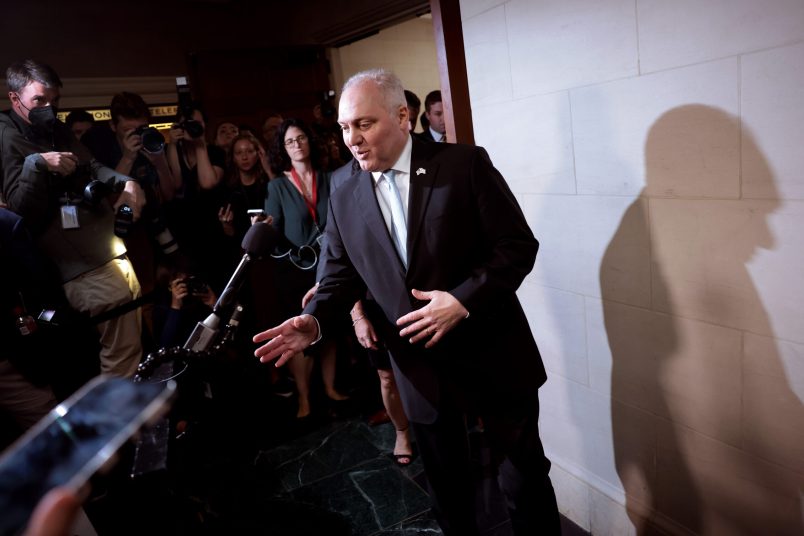Rep. Steve Scalise (R-LA) emerged victorious from House Republicans’ closed-door, secret ballot speakership nomination vote Wednesday, though there might be more drama to come.
Prior to the vote, caucus members had tabled a rule that would have lifted the threshold for winning to that which the candidates will need on the House floor. That full vote — with its higher requirements — could come as soon as Wednesday afternoon.
On their way out of the meeting, a few members — including Reps. Lauren Boebert (R-CO) and Max Miller (R-OH) — told reporters that they still intended to vote for Rep. Jim Jordan (R-OH). Reps. Chip Roy (R-TX) and Michael Cloud (R-TX) tweeted shortly after that they would not vote for Scalise this afternoon, due to their opposition to a full House vote potentially coming so soon after the nominating meeting. A critical mass of such holdouts could sink Scalise’s chances.
There’s also the sticky wicket of the motion to vacate, the rule that let Rep. Matt Gaetz (R-FL) alone trigger the deposal of Rep. Kevin McCarthy (R-CA). A few days ago, there was active debate within the House Republican caucus on changing the rule, so the next speaker doesn’t sit beneath the same Sword of Damocles. Scalise has not yet made it a condition of his speakership; it would likely imperil a handful of votes, but extend his potential tenure.
Former Speaker Paul Ryan (R-WI) considered changing the motion to vacate rule when he was being pressed into holding the post, but ultimately preserved it, bowing to the right flank.
House action has mostly ground to a halt with the speaker’s post vacant, as Rep. Patrick McHenry (R-NC) presides as speaker pro tempore.
One member, though, moved with blinding speed Wednesday after Scalise won the nomination. Rep. Kevin Hern (R-OK), who’d briefly flirted with a speakership run himself, immediately threw his hat into the ring for majority leader — Scalise’s old job.



